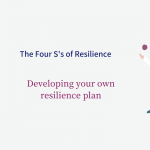Technology has become an integral part of our daily lives, transforming various industries and sectors. In recent years, technology has also made significant strides in revolutionizing healthcare. From advanced medical devices to telemedicine and artificial intelligence (AI), this article aims to explore the role of technology in transforming healthcare, improving patient outcomes, and enhancing the efficiency of healthcare delivery systems.
I. Advancements in Medical Devices:
a) Wearable Devices: Wearable technology, such as fitness trackers, smartwatches, and biosensors, has enabled individuals to monitor their health in real-time. These devices can track vital signs, measure physical activity, and provide valuable data for preventive care and early detection of health conditions.
b) Remote Monitoring: Remote monitoring devices allow healthcare providers to collect patient data outside of traditional medical settings. This technology enables the continuous monitoring of chronic conditions, postoperative recovery, and vital signs, providing timely interventions and reducing hospital readmissions.
c) Robotics: Robotic technology has revolutionized surgical procedures, offering enhanced precision, reduced invasiveness, and faster recovery times. Surgeons can now perform complex surgeries with the assistance of robotic systems, improving patient outcomes and reducing the risk of complications.
II. Telemedicine and Digital Health:
a) Telemedicine: Telemedicine has transformed healthcare accessibility, particularly in remote or underserved areas. Through video consultations, patients can receive medical advice, diagnosis, and even treatment from healthcare professionals without the need for in-person visits. Telemedicine has also facilitated the monitoring of chronic conditions and improved continuity of care.
b) Mobile Health Applications: Mobile health applications, or “apps,” have proliferated in recent years, offering a wide range of functionalities. These apps enable users to track their fitness, manage chronic conditions, access medical information, and receive personalized healthcare recommendations. They empower individuals to take control of their health and engage in preventive care.
c) Electronic Health Records (EHRs): EHRs have replaced traditional paper-based medical records, streamlining healthcare documentation and improving information exchange between healthcare providers. EHRs enable secure storage and retrieval of patient data, facilitate communication among healthcare teams, and support data-driven decision-making for improved patient care.
III. Artificial Intelligence and Data Analytics:
a) AI-Assisted Diagnostics: Artificial intelligence algorithms can analyze vast amounts of medical data and assist in diagnosing diseases, interpreting medical images, and predicting treatment responses. AI has the potential to enhance diagnostic accuracy, reduce errors, and expedite the delivery of personalized treatment plans.
b) Predictive Analytics: By leveraging big data and advanced analytics, healthcare systems can identify patterns, detect trends, and predict disease outbreaks. Predictive analytics can aid in resource allocation, optimizing healthcare delivery, and improving population health management.
c) Precision Medicine: Technology plays a vital role in the advancement of precision medicine, which aims to provide personalized treatment plans based on individual genetic profiles, lifestyle factors, and environmental influences. Through genomic sequencing, bioinformatics, and AI, healthcare providers can tailor therapies to maximize efficacy and minimize adverse effects.
IV. Challenges and Considerations:
While technology brings immense potential for healthcare transformation, it also presents challenges that need to be addressed. These include ensuring data privacy and security, addressing health disparities in access to technology, and maintaining a balance between technological advancements and human interaction in patient care.
V. Conclusion:
Technology continues to revolutionize healthcare, empowering patients, enhancing diagnostics and treatment, and improving healthcare delivery systems. From wearable devices and telemedicine to AI and data analytics, the impact of technology in healthcare is profound. By embracing and leveraging these advancements responsibly, healthcare providers, researchers, and policymakers can work together to create a future where technology-driven healthcare delivers improved outcomes, cost-effectiveness, and enhanced patient experiences.




















Add Comment